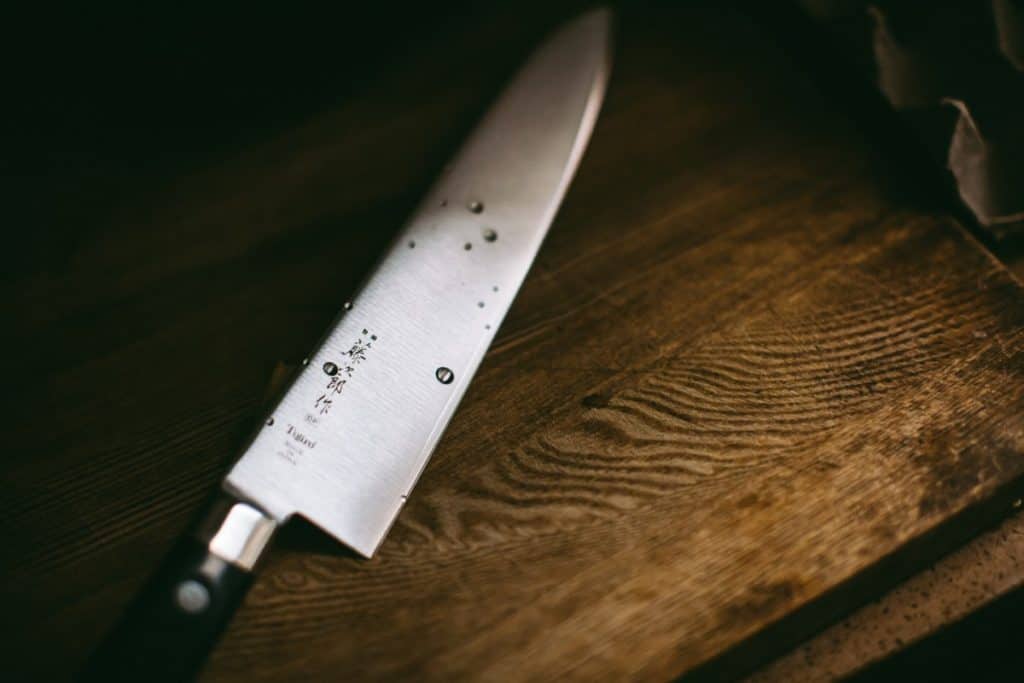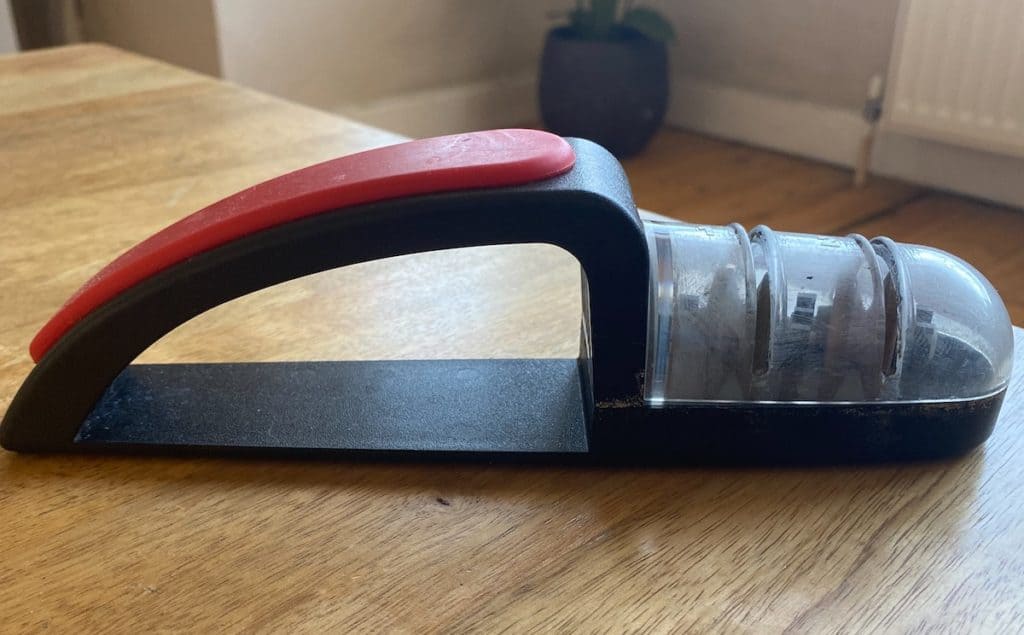
How Often do Chefs Sharpen Their Knives?
A knife is the single most important tool in a chef’s box, therefor as I’m sure readers can imagine, they are looked after very well! Even home cooks will know the joy of caring for a good quality knife as they progress along their creative culinary journey.
Purchasing a great quality knife is a really important first step. It need not cost the earth though, (the company Victorinox make some great affordable chef knives I have used for many years).
Once the proud wheeler of our professional tool it is important that we know how to keep it sharp. After all, a blunt chefs knife is as useful as trying to chop onions with a butter knife!
So what is the optimal amount we should be sharpening our knives? After all, we don’t want to risk over sharpening and damaging the blade.
The amount we need to sharpen our knives varies depending on how often we use them. However as a guide from my own days as a professional chef;
During my chef career I would sharpen my knife multiple times a day using a sharpening steel. This was usually a quick 10 strokes on each side of the blade to maintain peak sharpness. Around every 3-4 weeks I would then take the time to fully re-sharpen my knife on a wet stone.
When using a sharpening steel to maintain the edge I will often sharpen it quickly before certain tasks. For example if I need to carve a joint of beef a quick sharpen on the steel will always help the knife ease it’s way through.
Why Do Chefs Sharpen Knives So Quickly?
You will often see on T.V chefs running their knives up and down sharpening steels really quickly. Whilst this looks really good the same results can be achieved by going at a much slower pace.
I use a sharpening steel multiple times a day so that my knife maintains a good level of sharpness. If we allow a knife to get blunt it looses its ‘edge’
Trying to get the knife edge back using a sharpening steel alone is hard work and often not very successful. We then have to take the time to use a wet stone to sharpen it fully. It is far less time consuming to sharpen it for less time and with greater frequency.
When Do Chefs Sharpen Their Knives?
As a Chef, there are no set times when I would decide to sharpen my knife. It wasn’t like there was an allotted time each day for it. Instead having a sharpening steel to hand is part and parcel of the job for whenever the knife feels it is not as sharp as it should be
My morning routine would always consist of reaching into my chef box to grab out my large cooks knife and my sharpening steel then setting them up beside my chopping board on the work bench.
When working I became accustomed to the feel of the knife. I could always tell if the knife felt a little dull.
Why Do Chefs Sharpen Their Knives So Much?
As a chef I would sharpen my knife multiple times a day as prepping food at speed is an important part of the job. If my knife is going blunt it makes preparing produce more cumbersome and time consuming.
Having a sharp knife makes the daily tasks that much simpler. Often there are jobs that need to be done as quickly as possible to get them out of the way so that we can move onto more exciting cooking!
If I have a bag of potatoes to prep, chances are that I am not overly excited about the prospect. Trying to do this prep work with a blunt knife just makes the whole experience that much more patience trying.
Readers who are DIY enthusiasts may know the feeling of trying to complete a task with the tool that is not quite right for the job.
It’s an experience that gets very frustrating very quickly. Instead of using the screwdriver we have to hand to hammer in that nail, we are far better off taking the five minutes required to go and locate the hammer.
The same is true for chefs and their knives. By taking the 5 minutes required to sharpen a knife correctly we are saving time in the long run and having a much more enjoyable experience.
Do Chefs Use Sharpening Stones?
As a chef, even though I am using a sharpening steel regularly, over the course of a few weeks I will notice my knife getting less and less sharp. At this point I will spend 5-10 minutes fully resharpening my knife on a sharpening stone, (or wet stone as it is often called)
This may not sound like a lot of time but it can substantially add up when you consider that as a chef I had around 15 different knives, a number I would consider pretty average among my peers.
Once the edge is back on the knife from the stone, we can then finish it off with our steel and voila, we’re good to go again!
Is Learning To Sharpen A Knife Difficult?
Despite how it looks, learning to sharpen a knife is actually very easy. There is no need to try and go at break neck speed like the celebrity chefs on T.V, that after all is just asking for trouble!
As a beginner, focus on the correct angle of the blade and slow controlled strokes. After a surprisingly small amount of practice you will begin to feel like a pro.
There are a huge amount of videos on YouTube of chefs showing how to sharpen knives such as the one below.
If learning the correct technique seems a little complicated and you would like a faster solution. I discovered a great sharpening stone that is positioned in an enclosure at the correct angle.
I bought this one pictured below and used it for several years in the kitchen alongside a wet stone. I was pretty impressed with it although I would still advise using a sharpening steel alongside this type of sharpener.
These take much of the skill out of knife sharpening. In my opinion it is a pretty good gadget and keeps a knife sharp. The two stones offer two types of coarseness.
A rougher stone to bring a knife back from being blunt, and a finer stone for the finishing work.

It is important to remember that chefs do not let other chefs sharpen their knives. Each person has a unique technique that puts a slightly different edge on their blade compared to other chefs.
If I were to sharpen another chefs knife, I could actually do more harm than good and increase the rate at which it becomes blunt.
When starting in a kitchen be sure to ask before sharpening another chefs knives. Some don’t mind but others like myself think it is bad practice and damages the blade edge!
I hope that has been useful and readers are now armed with knowledge to keep their own knives razor sharp.
Disclaimer: Sharpening knives can be dangerous and should only be attempted by competent adults.
